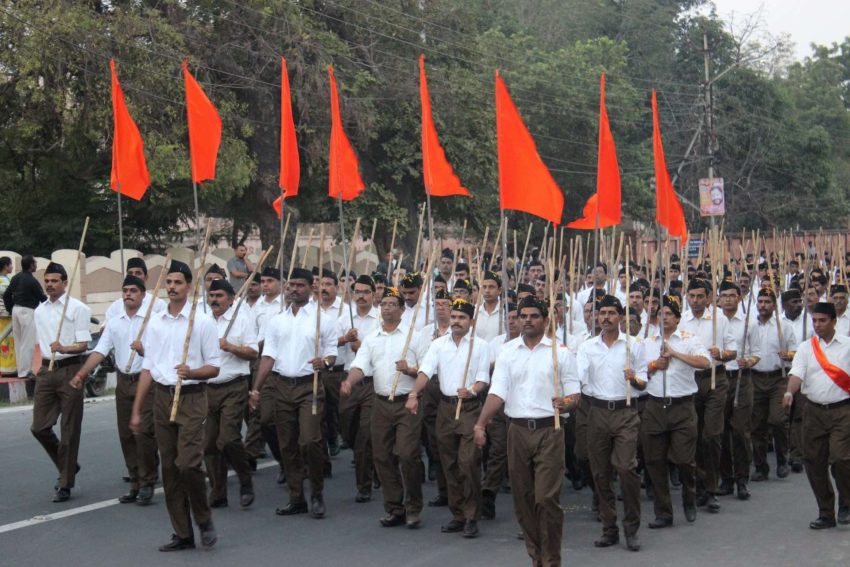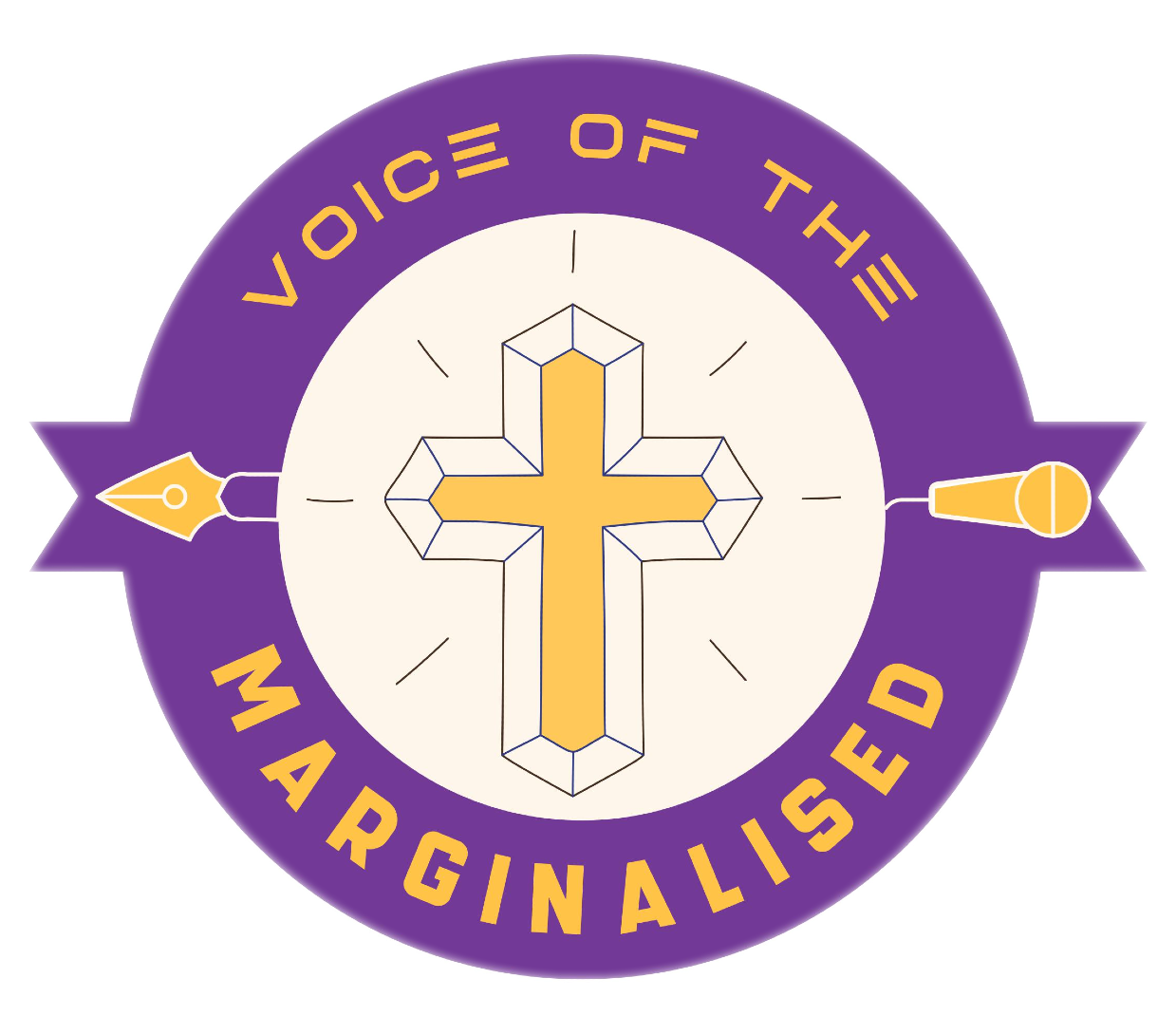Hindu nationalism threatens India’s collective spirit

India is a cradle of multiple civilisations, cultures, and religious beliefs. The Preamble of the Constitution begins “We, the People of India,” emphasising the nation’s collective spirit.
Article 25 supports this idea even more by saying that every citizen is entitled to freedom of religion. This means that everyone is entitled to freedom of conscience and the freedom to share, practise, and teach their faith.
This commitment to religious freedom is what makes India unique and truly secular. India is an example of how to live together peacefully because it has a long history of celebrating secularism and valuing unity in diversity.
India has always been a friendly country, but the rise of Hindutva rule in 2014 made the country less secular. There has been a lot more violence in India against religious minorities and indigenous communities since 2014. The Annual Report of the US Commission on International Religious Freedom 2025 recommended that the US government designate it a Country of Particular Concern (CPC), highlighting these key points.
Violence and hate speech against Christians and religious minorities in India stand against the secularism of the country. Religious minorities are the target of violence. Indian is facing two incidents of violence against Christians every day, according to the United Christian Forum (UCF), an ecumenical group based in New Delhi.
Who is spreading false propaganda against the Christians? The Hindu nationalist Bharatiya Janata Party (BJP) government and its “Sangh Parivar” groups are driving so much hate. The Sangh Parivar (“Family of Organisations”, also called “the Sangh”) is an umbrella network for roughly three-dozen Hindu nationalist groups in India.
Many of these groups draw inspiration from fascism in Europe. The far-right Rashtriya Swayamsevak Sangh (RSS, National Volunteers Corps) was founded a hundred years ago, and the BJP emerged as its political wing. Some Indian analysts still think that the BJP has a “proto-fascist” agenda today. The Hindu caste system also shapes the beliefs of the Sangh Parivar groups.
Christians have been killed, tortured, and wrongly charged under laws that try to stop people from becoming Christians of their own free will, as permitted under the Constitution. There have been notorious cases of violence, dating back to the killing of the family of Australian Baptist missionary Graham Staines in 1999 and the anti-Christian riots in Odisha’s Kandhamal district in 2008. In 2020, the Jesuit Fr Stan Swamy was arrested and charged by the National Investigation Agency under the Unlawful Activities (Prevention) Act. He died while in custody, despite his relentless work with and for indigenous groups’ empowerment and championing their rights.
Conversion is a contentious issue in India. The population of approximately 1.4 billion people is religiously diverse. According to the 2011 Census, Christians constitute 2.3 per cent of the total, little changed even in 2025. However, some Protestant churches and Hindu nationalist groups charge Catholic priests, nuns and pastors of other churches of pursuing conversions. Christian institutions are raided, they are charged with sexual abuse of minors, and their worship places are vandalided.
One of the 12 Indian states that strictly enforces an anti-conversion law is Chhattisgarh. Subhash Baghel, a Christian from Bastar in Chhattisgarh, wished for his final resting place to be beside his family members. After he died on 7 January this year, Hindutva activists prevented his burial and ostracised the Christian community.
In March, four tribal Christians were forced to convert to Hinduism to be able to bury the heads of their family members in Siunaguda village, in the Nabarangpur district of Odisha. Amid tensions and arguments, four Christian lawyers spent over 12 hours burying the dead.
The Sangh Parivar’s propaganda demanding one religion, one culture, and one language across India destroys the unity of the people. Hindu nationalist groups like the Vishva Hindu Parishad (VHP) hold ghar wapsi or “reconversion” or ceremonies for Indian Muslims and Christians to return to their “original religion” of Hinduism. As a cultural branch of RSS, the VHP is also one of the main groups calling for a nationwide ban on all religious conversions.
People in the rural areas are particularly vulnerable to this propaganda. Minority religious communities also hear this propaganda for a single religion, language and culture. It makes them feel they are no longer part of secular India, as it insists on majoritarian Hinduism. Right-wing forces accuse them of conversion and unlawful activities when they resist their power. Such lies spread by Hindu nationalist groups help politicians use people’s emotions and sentiments for political gain and to get more votes.
This is particularly unfortunate because the Christian contribution to India in education and social work is immense. Missionaries worked in these areas to improve people’s lives and give them dignity, especially to people and communities from disadvantaged and weak groups. They raised awareness among all people, irrespective of caste, race, and ethnicity. Christians gave a sense of community and worth to people who were poor and on the outside of society, like the Dalits (who were once “untouchables”) and indigenous tribal peoples. The Hindu caste system made things hard for these two weak communities, but education and development work has helped them.
The Sangh Parivar’s agenda to promote a nomothetic hegemony is threatened by this work. So, to get rid of Christians, they use violence and accuse Christians of engaging in charitable work for conversion purposes.
School authorities accuse Catholic priests and nuns of converting children and and sexually abusing them. In Christian schools, the government forces them to install a picture of the Hindu goddess Saraswati, the symbol of wisdom in education. Because the government provides support for most Christian schools, they are forced to follow its instructions.
The BJP government wants to stop the progress of the country by attacking Christian charities, cancelling their foreign donations under the Foreign Contribution Regulation Act (FCRA) and forcing them to shut down.
The Missionaries of Charity (MC), founded by Mother Teresa of Calcutta, and World Vision India are two of the most important charities that help poor and disadvantaged children. In 2021, the MC sisters were accused of conversion. The nuns deny the charge. The cancellation of World Vision India’s FCRA in 2024 marked the end of its 70-year operation.
Dalits and tribal people – now designated “Scheduled Caste” – can benefit from affirmative action by the Indian government, but it refuses to recognise this status for those who have converted from Hinduism to Christianity or Islam.
I live in a multi-faith neighbourhood where the Hindus are the majority, and the Muslims are the minority. During my daily walk, I often encountered a Muslim woman. After we got to know each other, she asked me to tutor her granddaughter. After I agreed, she recounted the tale of a Muslim woman who converted to Christianity at her place of work. Her story suggested that she doesn’t often discuss Christianity with her granddaughter.
I had not had such an encounter before. Christians in India were once renowned for providing the best educational services in the country, but the rise of the Hindutva regime has fostered the spread of anti-Christian hate and the desecration of statues churches in place of the esteem for what the Church could offer.
The Constitution of India upholds the spirit of brotherhood among its citizens and safeguards the freedom of religion and belief for every individual. This same spirit must be nurtured to foster an inclusive and peaceful society, where harmony prevails, and every citizen experiences unity and mutual respect. It is imperative for political parties and leaders to embody the values enshrined in the Constitution, ensuring that every individual is treated with dignity and respect.
Robancy A. Helen is a sister of the Messengers of Mary of Magnificat based in Tamil Nadu. She worked as a programme coordinator for the Catholic Bishops’ Conference of India’s Office for Scheduled Castes and Backward Classes, focusing on Dalit Christian women and women’s rights.
Credit: The Tablet

Leave a Reply